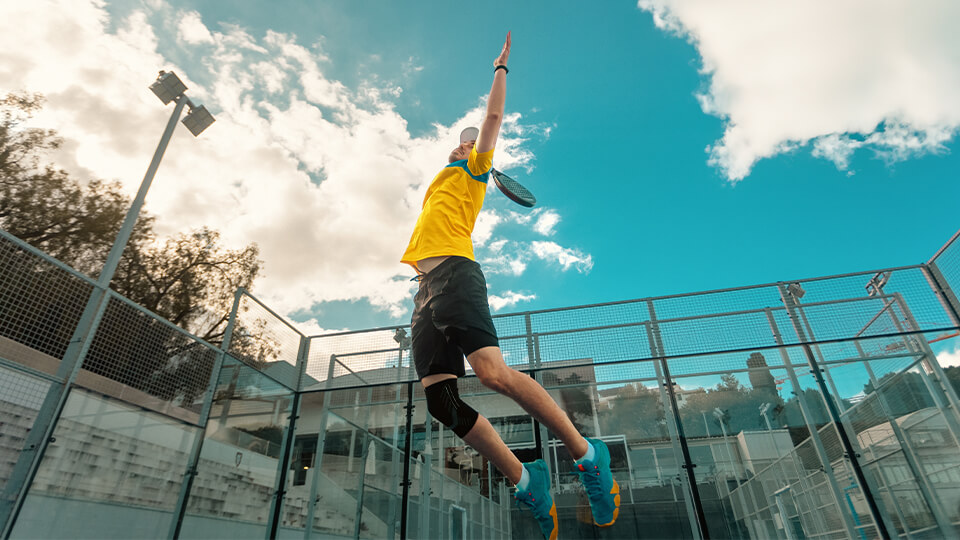The sports industry is experiencing a seismic shift, driving demand for new senior leadership roles.
Emerging leagues and entertainment-driven sports platforms such as padel, the TGL Golf League, and King’s League are redefining the traditional sports business playbook. This is creating new engagement models and monetisation strategies, leading to the emergence of scalable sports entertainment ecosystems.
These developments are influencing everything from content consumption to hiring strategies, with new roles emerging in branding, partnerships, live events, and media production. As the industry expands, organisations must identify and attract leadership talent capable of navigating these new opportunities.
The Rise of New Sports and Formats
A wave of new sports is capturing global audiences, driven by fresh formats and hybrid leagues designed for a fast-paced, digitally native world. For example, padel and pickleball are experiencing rapid expansion across Europe, Latin America, and North America. Their accessibility and social appeal make them particularly attractive to younger and casual audiences.
Elsewhere, hybrid leagues such as the King’s League are revolutionising traditional sports by incorporating entertainment-driven elements and esports-style engagement. Created by Gerard Piqué, the league has demonstrated how blending sport with digital entertainment can drive viral success. Similarly, the Baller League is making waves by merging football with high-energy showmanship.
Esports continues to blur the line between gaming and traditional sports, with organisations investing heavily in crossover opportunities. The NBA 2K League and F1 Esports illustrate this trend, where digital sports provide an alternative way to engage younger fans. Meanwhile, sports like cricket and rugby are breaking into non-traditional markets, with Major League Cricket in the US showing how strategic investments and media partnerships can accelerate expansion.
Content and Consumption Trends in Rapid Evolution
Modern sports consumption is shifting rapidly, forcing leagues and organisations to adapt to new audience preferences. Short-form content is dominating the industry, with platforms like TikTok, Instagram Reels, and YouTube Shorts influencing how fans engage with sports. Leagues are increasingly focusing on producing snackable, monetisable content that enhances fan interaction and revenue generation.
The NBA has pioneered innovative media strategies, integrating behind the scenes access, influencer collaborations, and interactive experiences to maintain its global audience.
This digital-first approach is setting the standard for other leagues aiming to remain relevant in an era of rapidly shifting fan expectations.
Athletes and sports organisations are transforming into media brands. Figures like LeBron James and the Beckhams are leveraging content production to extend their influence beyond the playing field, reshaping the business of sports. This shift underscores how brand-building and media ownership are becoming as crucial as on-field performance.
New Sports Demand New Talent
As the industry transforms, so do its talent requirements. Organisations are building teams with the expertise to scale new sports ventures and drive engagement in an increasingly digital landscape. The demand for leadership roles in brand strategy, content creation, partnerships, live events, and production is rising, with executives in these positions playing a pivotal role in shaping the future of emerging sports.
Leaders with expertise in digital engagement, innovative monetisation, and partnership-building are now essential.
Attracting and retaining younger audiences through immersive, interactive content is a core priority for modern sports organisations. Likewise, the fast-paced nature of new sports requires professionals who thrive in high-growth, high-adaptation environments, making flexibility and entrepreneurial thinking critical attributes for success.
Importantly, the industry is increasingly looking outside the traditional sports talent pool for leadership hires. Executives from entertainment, technology, consumer and digital media sectors are bringing fresh perspectives and innovative strategies to sports organisations. Recent senior appointments, for example, have included leaders with backgrounds in streaming platforms, global consumer brands, and interactive gaming – highlighting the need for cross-industry expertise to navigate evolving sports ecosystems.
The Growing Role of Interim and Flexible Hiring
Interim hiring strategies are also becoming a core component of talent acquisition in the evolving sports industry. Organisations are leveraging temporary executive talent to test new approaches, launch initiatives, and pivot as needed in uncertain markets.
This model enables rapid scaling while maintaining operational resilience, particularly as new sports and entertainment formats continue to develop at speed.
The ability to deploy experienced leaders on a short-term basis allows organisations to respond proactively to shifting consumer trends and emerging monetisation opportunities. This is particularly critical in an industry where agility and first-mover advantage can dictate long-term success.
A Fundamental Transformation
The rise of new sports and entertainment platforms signals a fundamental transformation in the industry. As leagues and athletes evolve into media brands, and as emerging sports disrupt traditional structures, organisations must rethink how they engage audiences, produce content, and build teams.
Talent strategies will be a critical differentiator, with demand for forward-thinking, adaptable leaders at an all-time high. Those who embrace this new era of sports entertainment will be best positioned to drive growth, capture new markets, and redefine the future of the industry.
___________________________________________________________
Get in touch. Follow the links below to discover more, or contact our dedicated leadership experts from your local Odgers Berndtson office here.

Never miss an issue
Subscribe to our global magazine to hear our latest insights, opinions and featured articles.
Follow us
Join us on our social media channels and see how we're addressing today's biggest issues.



